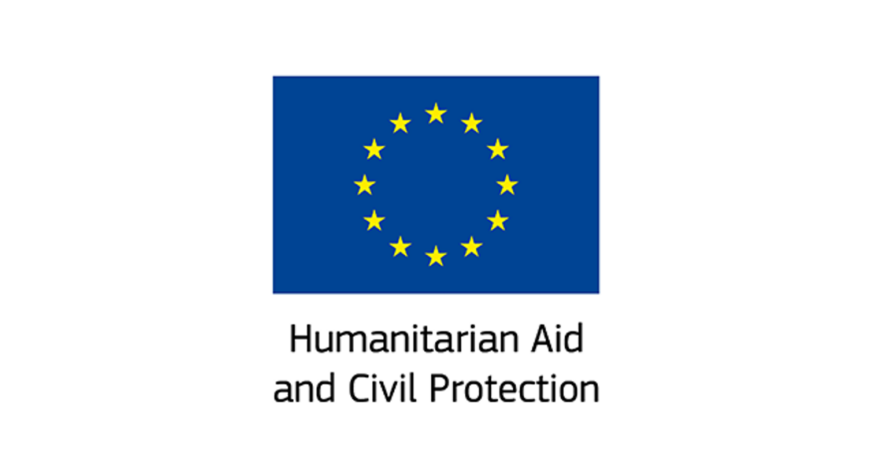In response to recurring fire and water hazards in the Rohingya camps of Cox’s Bazar, Acted launched a 42-month Disaster Preparedness project in October 2023, funded by the European Union. The initiative is designed to equip vulnerable communities, including volunteers, teachers, and camp residents, with life-saving knowledge and tools to respond effectively to emergencies. Through targeted trainings and equipment maintenance, the project strengthens community capacity and promotes a culture of safety across the camp settlement. This project introduces the ‘One Camp’ approach, ensuring that the response capacities of all 33 camps can be mobilised to support any camp facing a disaster. By empowering first responders and educators, Acted is helping build more resilient and self-reliant camp communities in the face of an emergency.
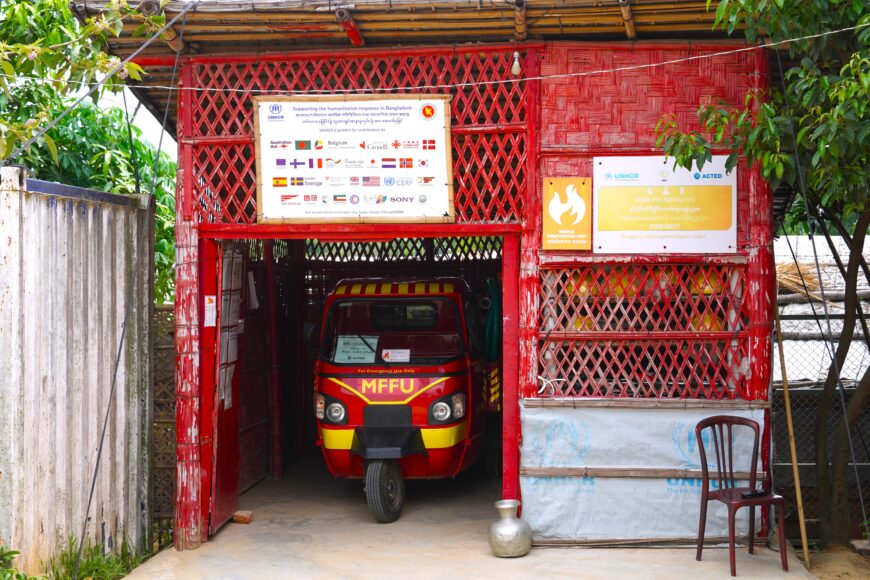
The Rohingya camps in Cox’s Bazar face frequent fire outbreaks and seasonal flooding, exposing displaced families to serious risks. Limited awareness and technical capacity have long hindered effective emergency response in these densely populated settlements. To address this, Acted is implementing a comprehensive Disaster Preparedness project with the European Union’s support.
Volunteers from Site Management Support (SMS) and Disaster Management Units (DMUs) received training in fire safety response. Additionally, learning center teachers have received training in fire and water safety. Also, household individuals have participated in awareness sessions on fire prevention across 33 camps. To ensure rapid response capabilities, basic repair and maintenance training for Mobile Fire Fighting Units and other equipment has been provided for the SMS volunteers. A hotline system established by Acted to ensure the timely reporting of equipment issues.
As of June 2025, the project has reached 17,080 individuals through household fire prevention training, 3,369 SMS volunteers received training in fire safety and 825 teachers in fire and water safety. Moreover, 59 three-wheelers and 585 portable water pumps were repaired and maintained.
These initiatives are building a community-led response network, enhancing preparedness and safety across the Rohingya settlement.
Household fire safety: Reaching 17,080 displaced Rohingya Across the Settlement
In a crowded camp settlement, 38-year-old Sabika Akter used to live in constant fear of fire. That changed after she attended Acted’s Household Fire Prevention training under this disaster preparedness project. The sessions taught her practical safety measures, like storing sand and blankets in the shelter, keeping matches away from children, and always putting out flames before sleeping. Most importantly, the training gave her confidence.
Sabika now shares what she has learned with her neighbours, helping build a safer community. She is one of over 17,080 individuals across the camps who have been trained to prevent fire hazards and respond responsibly during emergencies.
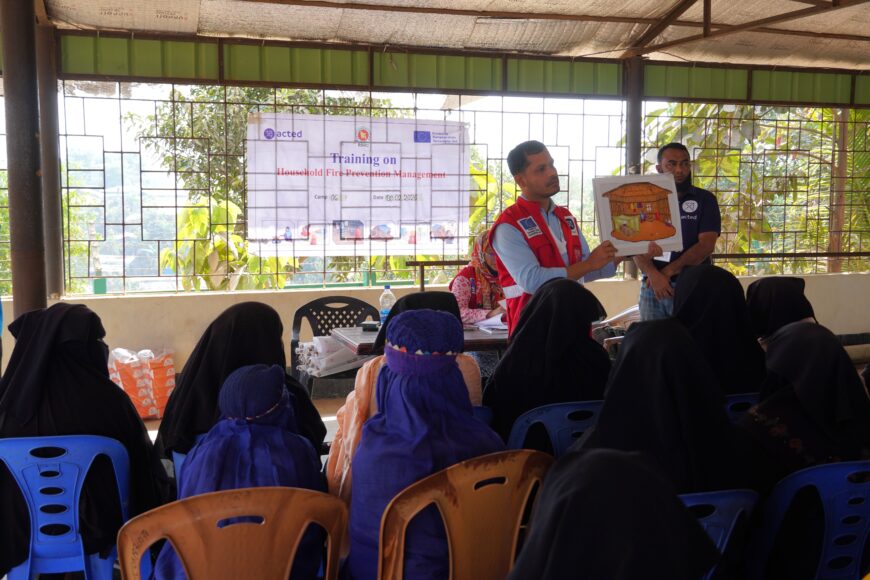
From training to real-life impact: Rehan and Hasan’s Fire Response Story
In March 2024, site management support volunteers Rehan and Hasan took part in fire safety refresher training. Just months later, their skills were put to the test.
During a devastating fire in December 2024, Rehan helped rescue an elderly woman, while Hasan arrived with the mobile firefighting unit and led a team of volunteers in the response. The training they had received empowered them to act swiftly and safely when it mattered most. They are among the 3,369 volunteers who have received fire safety refresher training, forming a vital network of first responders across the camp. This community-led approach follows the ‘One Camp’ strategy, ensuring that trained volunteers from across all 33 camps can mobilize in support of any camp facing a disaster.
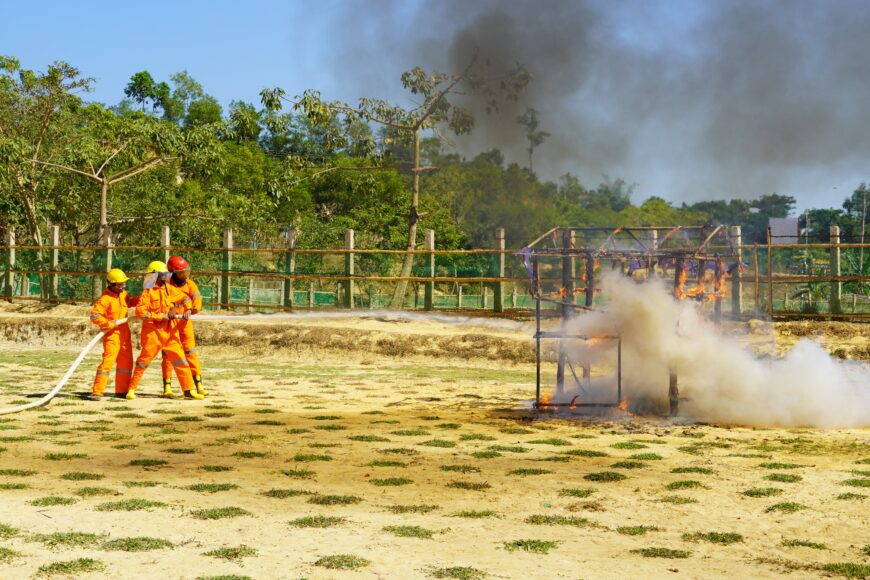
Preparedness begins with learning: Aziz and Marjina lead the way
Aziz and Marjina, two dedicated Rohingya teachers in Cox’s Bazar camp learning centers, received fire and water safety training through this project. Since then, Aziz has been teaching his students how to stay safe – for example by avoiding matchboxes and not playing with fire, or staying away from ponds if they can’t swim, unless accompanied by an adult. Marjina, whose learning center is located near a pond, has already noticed a change: her students now act cautiously and remind others to stay safe. Both teachers also engage with parents, spreading awareness beyond the classroom. Aziz and Marjina are among 825 trained teachers who are helping build a culture of safety and preparedness among children and families in the camps.
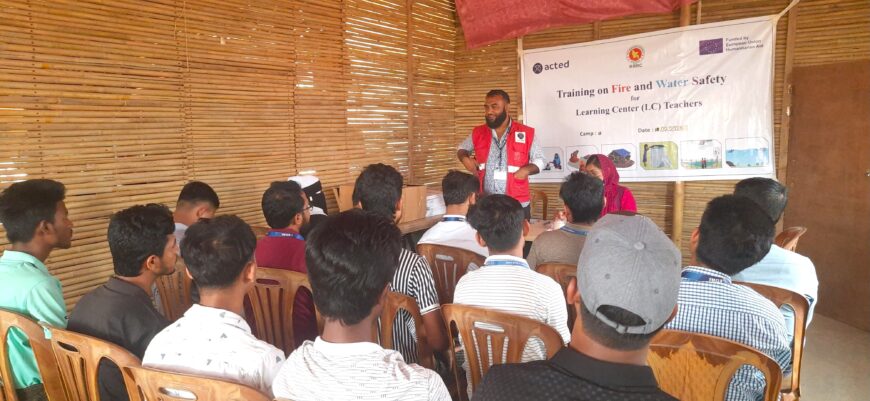
Through trainings, equipment support, and community engagement, Acted’s disaster preparedness efforts are saving lives and fostering resilience in the Rohingya camps. As awareness grows and community capacities strengthen, people become better equipped to prevent and respond to emergencies. Continued preparedness funding will enable Rohingya populations to be safer, better informed, and self-reliant in the face of future disasters.
